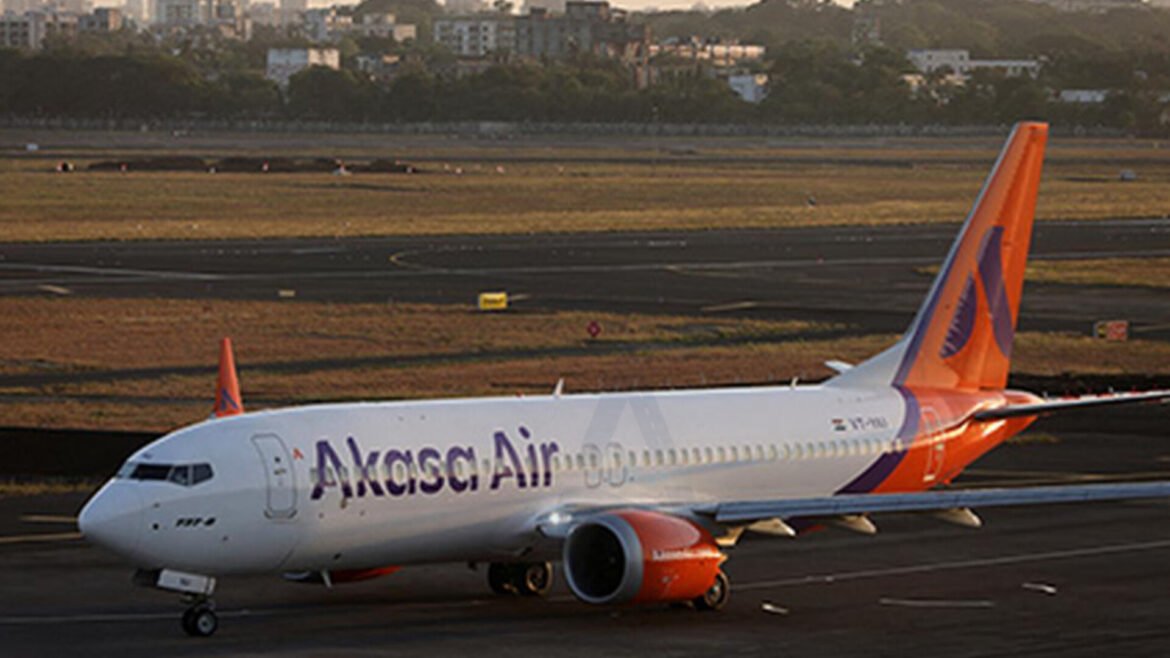The Directorate General of Civil Aviation (DGCA) has taken action against Akasa Air by removing Captain Kuljeet Yadav, a Line Training Captain (LTC), from his training duties. This decision comes after an investigation into an unstable landing incident that took place in Bengaluru in March 2024. The DGCA found that the airline had failed to provide the mandatory corrective training to the cockpit crew involved in the incident, which is a breach of regulatory requirements.
As part of the DGCA’s order, Captain Yadav’s approval for LTC status, which grants senior pilots the responsibility of providing practical training to trainee pilots during commercial flights, has been revoked. This means Captain Yadav is no longer authorized to supervise training or oversee important flight operations, including takeoffs and landings involving trainee pilots. The regulator’s move is seen as a significant step in ensuring better safety standards within the airline and reinforcing the importance of continuous training for pilots.
The incident in March 2024 raised concerns about the safety protocols in place at Akasa Air. An unstable landing can be a sign of underlying issues that need to be addressed promptly through corrective training. Failing to do so not only jeopardizes the safety of passengers and crew but also raises questions about the airline’s commitment to maintaining high safety standards. In this case, the DGCA’s action highlights the need for airlines to be accountable and to ensure their crews are thoroughly trained to handle all possible situations.
The DGCA’s decision to revoke Captain Yadav’s LTC status underscores the importance of strict adherence to safety guidelines and regulatory measures in the aviation sector. It is a reminder that the safety of passengers should always be the top priority and that corrective training is essential whenever safety incidents occur. The airline has been directed to take appropriate actions to address the lapses and improve the training protocols for its pilots to avoid any future incidents.
Akasa Air has not yet issued a public statement regarding the DGCA’s action, but the airline will likely be required to review its training procedures and make necessary adjustments. This may include ensuring that all crew members involved in safety-related incidents receive timely corrective training and that senior pilots like Captain Yadav are properly supervised. The DGCA’s action serves as an important reminder to all airlines in India about the critical importance of maintaining high standards of safety and training.
In conclusion, the DGCA’s intervention in this matter is an important step toward reinforcing safety in the Indian aviation sector. It emphasizes the need for airlines to uphold safety standards, conduct regular training, and address any lapses in a timely manner. This action will likely encourage other airlines to ensure that their crews are well-trained and ready to handle all aspects of flight, thereby ensuring the safety of passengers and the smooth operation of flights across the country.

